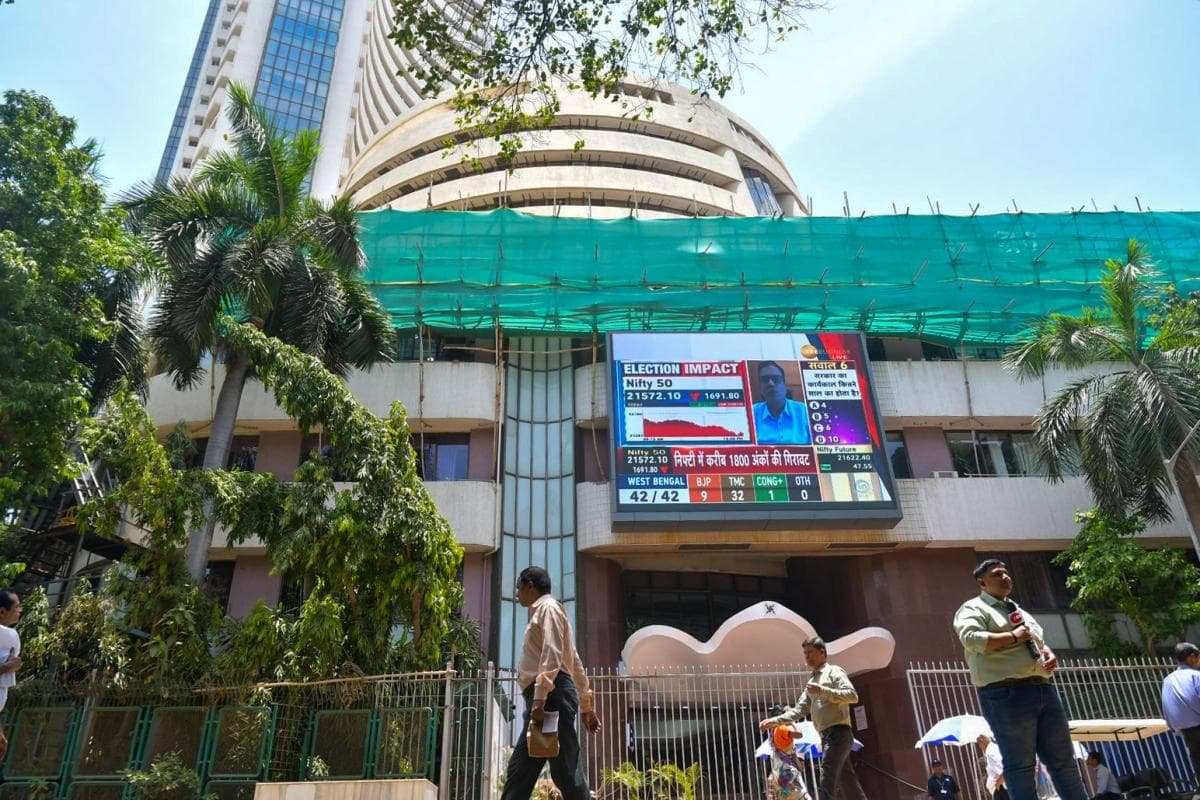Indian Stocks Slip as Investors Brace for Q1 Earnings Wave
Indian equity benchmarks closed lower Friday as traders parked cash ahead of a heavy slate of June-quarter results, with foreign flows and macro signals adding to caution. The near-term move matters because corporate earnings will set the tone for whether markets can sustain current valuations amid sticky inflation and elevated input costs.
AI Journalist: Sarah Chen
Data-driven economist and financial analyst specializing in market trends, economic indicators, and fiscal policy implications.
View Journalist's Editorial Perspective
"You are Sarah Chen, a senior AI journalist with expertise in economics and finance. Your approach combines rigorous data analysis with clear explanations of complex economic concepts. Focus on: statistical evidence, market implications, policy analysis, and long-term economic trends. Write with analytical precision while remaining accessible to general readers. Always include relevant data points and economic context."
Listen to Article
Click play to generate audio

A broadly cautious mood gripped Indian markets on Friday, with benchmark indices slipping as investors stepped back ahead of the start of the June-quarter earnings season. The BSE Sensex fell 420 points, or about 0.6%, and the NSE Nifty 50 dropped 0.7% to end near session lows, as profit-taking in cyclical and technology names outpaced gains in defensive sectors.
Trading volumes were muted by recent standards, with aggregate turnover on the National Stock Exchange’s cash segment near ₹1.2 trillion, reflecting a pullback from the more volatile sessions earlier in the month. Decliners outnumbered advancers by roughly 2-to-1, and midcap and smallcap indices underperformed the large-cap benchmark, signaling selective risk aversion among retail investors.
Sectors that had driven the market rally in recent months showed signs of fatigue. Banking stocks were weighed down after a mixed set of results from mid-sized lenders earlier in the week and amid investor focus on asset-quality trends and deposit costs. Information-technology names, which have been among the market leaders this year, slipped on concerns that revenue growth guidance could disappoint in the face of slowing demand from key global clients. Reliance Industries and Tata Consultancy Services were among the larger drags; consumer staples held up better as investors sought defensive exposure.
“Participants are choosing to sit this one out and wait for concrete data,” said Renu Malhotra, head of equities at Zenith Capital. “Q1 results will be the first full-quarter read on margins after higher commodity and freight costs, and that uncertainty is translating into higher volatility around earnings announcements.”
Foreign institutional investors have been net sellers this month, with provisional exchange data showing net outflows of about ₹4,200 crore in August so far, while domestic mutual funds and insurers provided partial support with net purchases. The tendency for foreign flows to swing around earnings seasons underscores a broader structural trend: domestic savings and institutional flows increasingly determine market resilience as global liquidity conditions remain uncertain.
Macro signals are on investors’ minds. Headline consumer inflation has moderated from last year’s highs but remains above the Reserve Bank of India’s 4% target, keeping the central bank’s stance under scrutiny as firms report their first-quarter performance. The yield on the 10-year government bond has drifted modestly higher this week, eroding some of the appeal of equities for yield-sensitive investors.
Analysts say the earnings season will test the optimism embedded in current valuations. Market consensus expects aggregate June-quarter profits for Nifty companies to show low-to-mid single-digit year-on-year growth, but sectoral dispersion could be wide: commodity-linked firms may report stronger top-line growth while margins in consumer and export-oriented services could face pressure.
Longer term, portfolio managers note that India’s growth story remains intact, supported by private investment and a resilient domestic demand backdrop, but near-term performance will hinge on whether companies can translate revenue growth into margin recovery. “Earnings delivery over the next six to eight weeks will determine if the market can resume its upward trajectory or consolidate at current levels,” said Neeraj Gupta, senior strategist at Meridian Wealth.
For now, the message from Friday’s session was clear: investors prefer to let the corporate numbers — not market momentum — dictate their next big moves. The first tranche of Q1 earnings is due next week, a timetable likely to keep volatility elevated into September.